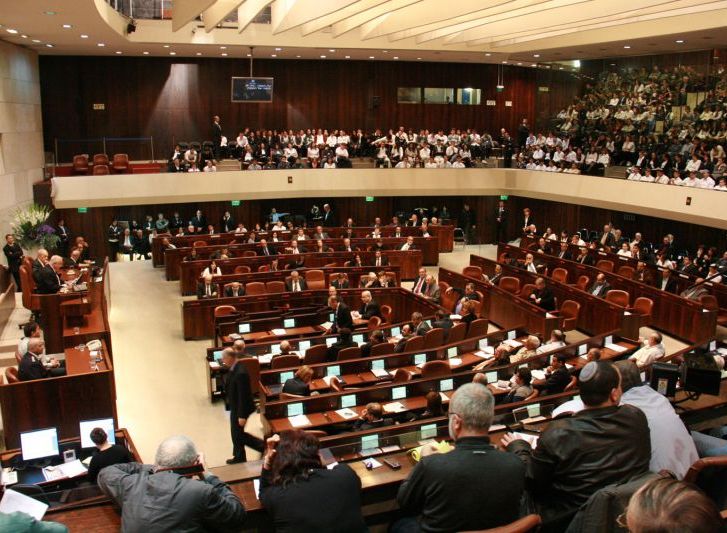Adalah to MKs: Vote Against the Extension and the Amendments to the Nationality and Entry into Israel Law
On 24 May 2005, Adalah sent an urgent letter to all members of Israel's parliament, the Knesset, requesting that they do not ratify a bill to extend and amend the Nationality and Entry into Israel Law (Temporary Order) – 2003 (the Law) when it is brought before the Knesset for discussion today, 25 May 2005, and later this week. The Law prohibits the granting of any residency or citizenship status in Israel to Palestinians from the West Bank and Gaza married to Israeli citizens. As a result, the Law flagrantly discriminates against Palestinian citizens of Israel – the overwhelming majority of Israeli citizens who marry Palestinians from the 1967 Occupied Palestinian Territories (OPTs) – and against Palestinians from the OPTs on the basis of nationality and ethnic belonging, and is disproportionate to the alleged security concerns cited to justify its enactment.
On 15 May 2005, Israeli cabinet ministers approved a draft bill to extend the validity of the Law, with some amendments. The amendments would allow family unification between residents of the OPTs and citizens of Israel in very limited circumstances. In the letter, Adalah Attorney Orna Kohn argued that the cabinet had been poorly advised on the aspects of international law that relate to the Law and its amendments. None of the amendments addresses the Law's severe violations of constitutionally-protected rights, including the rights to family life, dignity, equality, liberty, and privacy, which are protected under international law and are enshrined in the Basic Law: Human Dignity and Liberty - 1992; on the contrary, the amendments would inflict further violations of constitutional rights.
The amendments include age and gender-related stipulations, which impose a sweeping ban on applications from all Palestinian men under 35 years of age, and all Palestinian women under 25 years of age. These stipulations, Adalah argued, were arbitrarily decided upon, are unconstitutional and not supported by any factual evidence. A further amendment provides that status will not be granted to Palestinian spouses and parents of citizens of Israel who are related to individuals whom security officials suggest might constitute a threat to the state of Israel. Adalah argued that, under such circumstances, the most basic of human rights could be revoked purely on the basis of family relations, over which individuals often have no control. Furthermore, this presumptuous conclusion cannot be challenged and would hold even where no information exists linking an applicant to any alleged security threat posed by a relative, and even where an applicant has no personal contact with such a relative.
The Law was due to expire on 31 May 2005, 22 months after its original enactment, and over three years after the processing of family unification applications was frozen for Palestinian spouses of Israeli citizens. Throughout this time, thousands of families of Arab citizens married to Palestinian residents of the West Bank and Gaza Strip have been gravely harmed by the Law. In most cases, the persons involved are Israeli citizens who filed, prior to the enactment of the Law, a request to grant status to their spouse. Their requests were examined and approved, but the Law prevented the upgrading of the temporary status in Israel that had been granted to the spouse. This prohibition has forced such families to live under the constant fear of separation. In many other cases, in which the spouses had not yet received status in Israel, the Law prohibited the granting of any status in Israel to them, compelling the spouses to live apart, and tearing children away from their parents.
Adalah's petitions to the Supreme Court of Israel against the constitutionality of the law and against the cabinet's prior decision to freeze the processing of family unification applications are still pending. The Supreme Court has refrained from making decisions on these cases pending parliamentary decisions on the issue.
For more information, see Adalah's Special Report on Family Unification

















